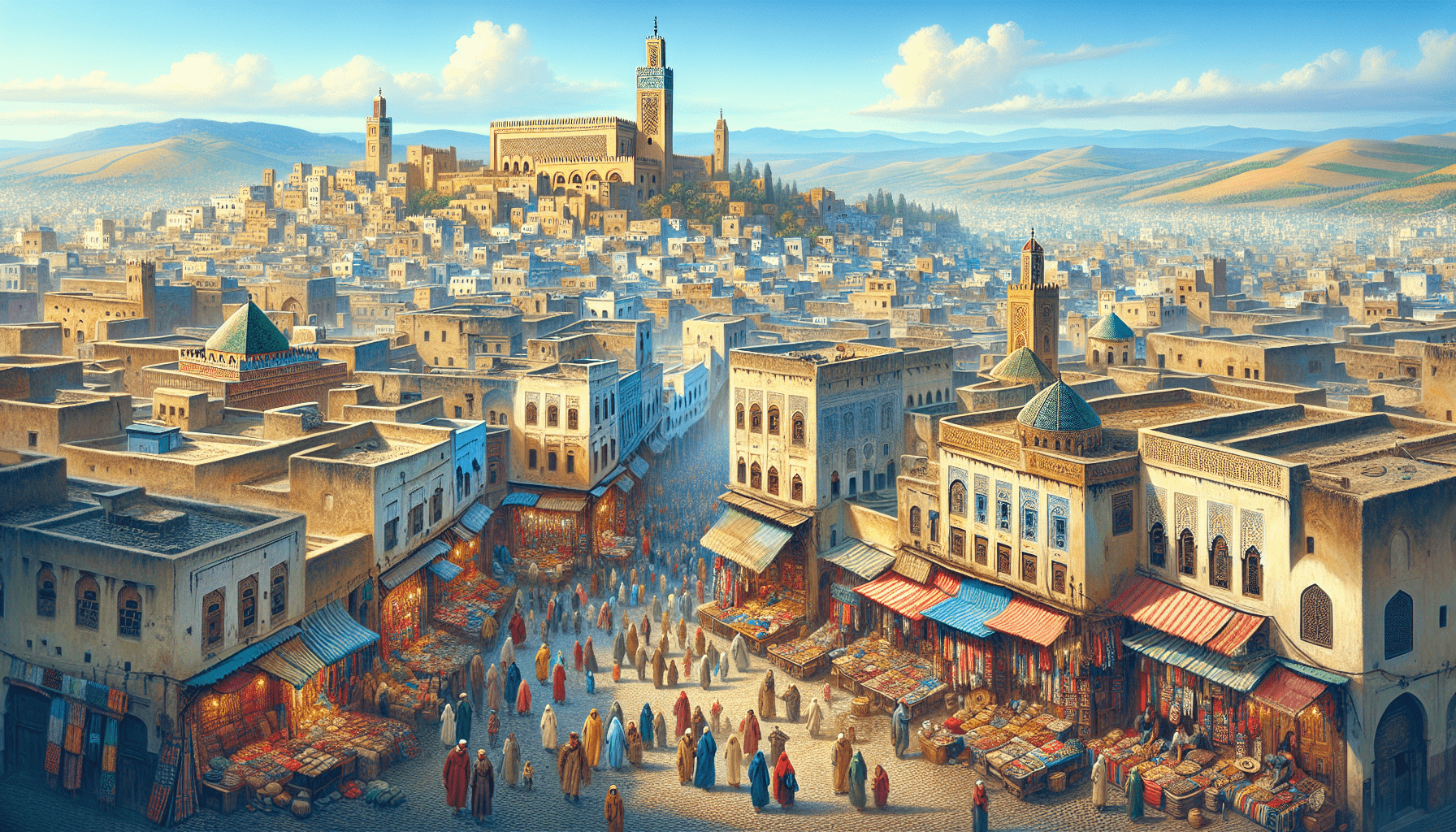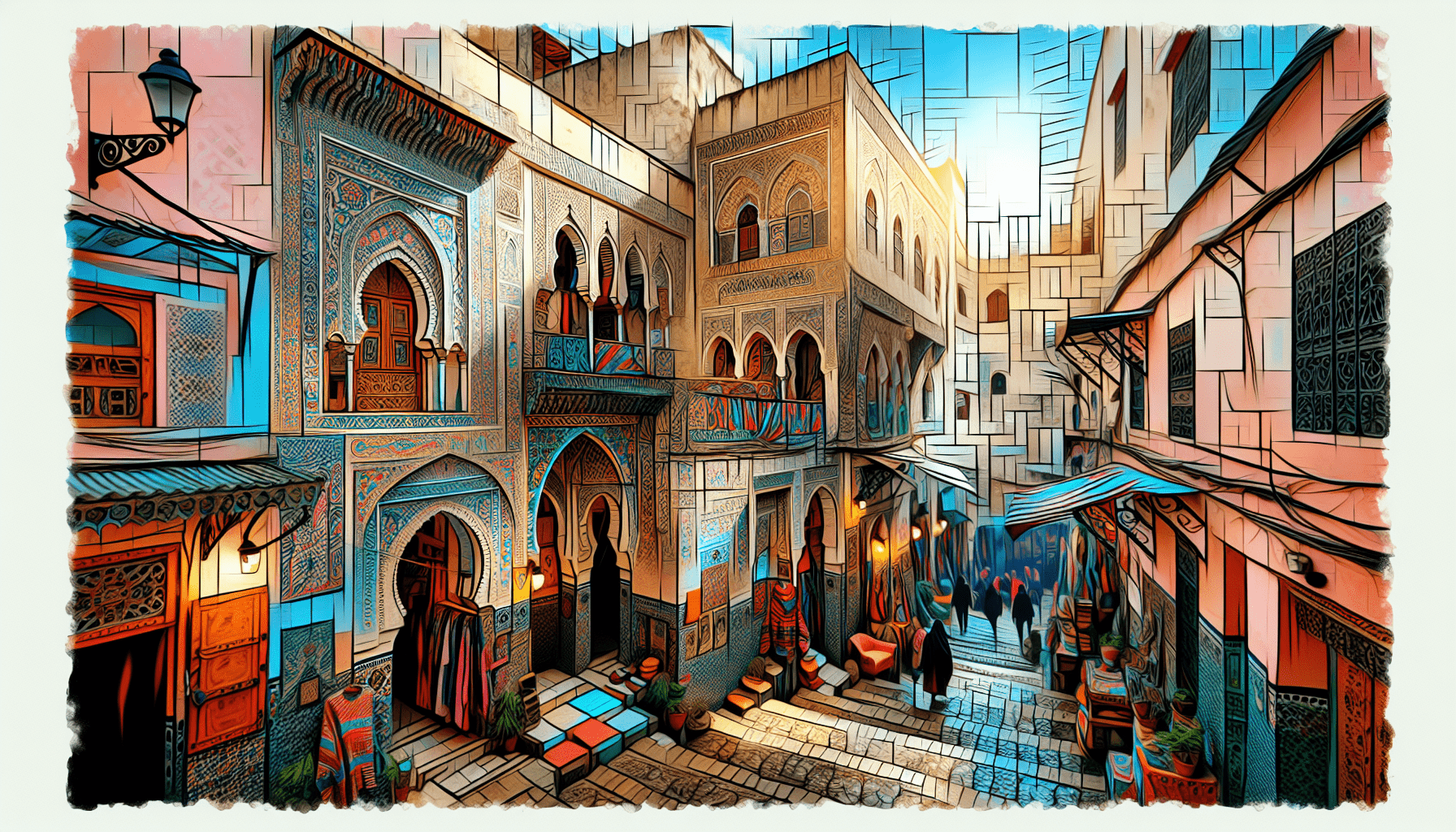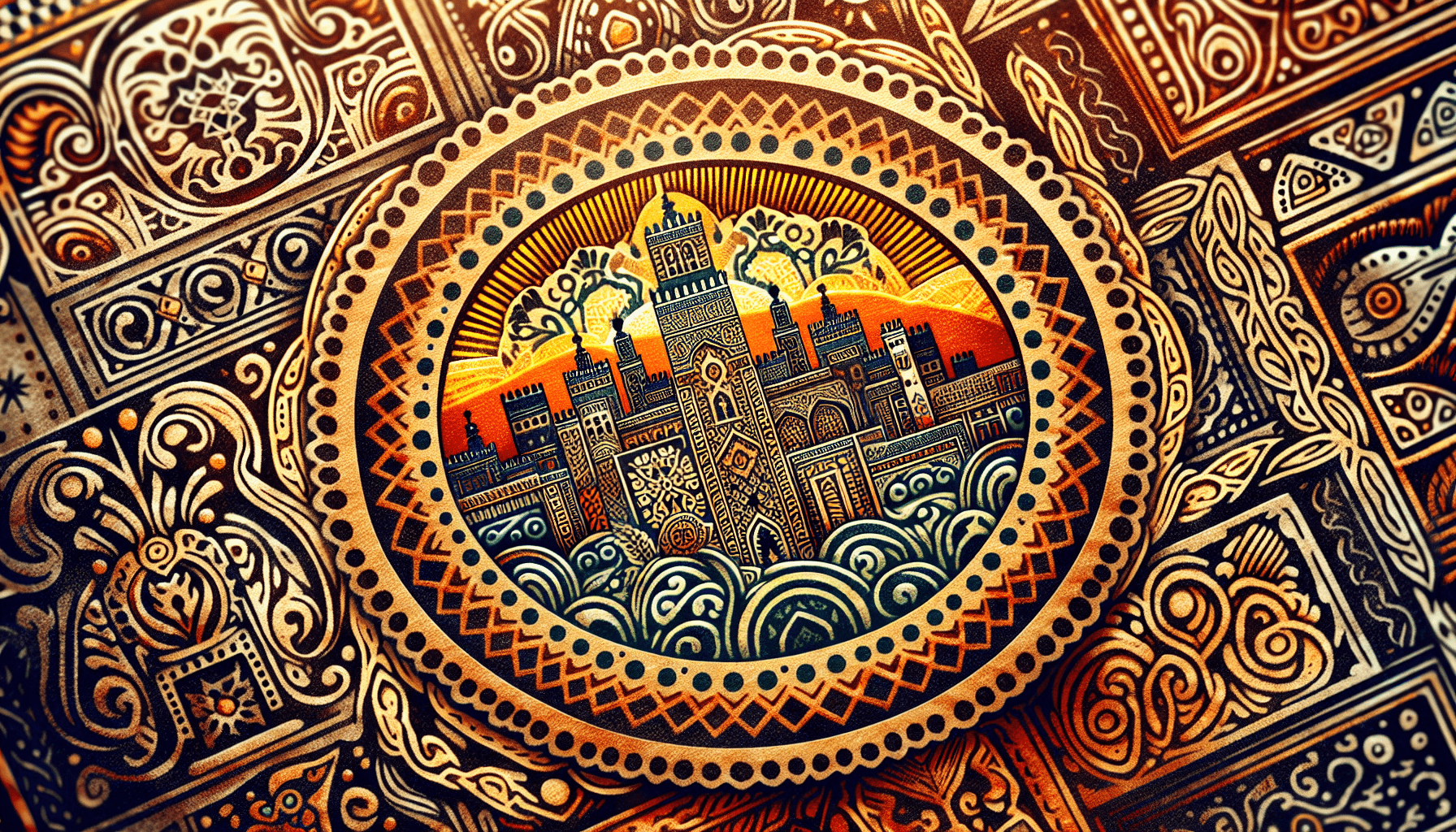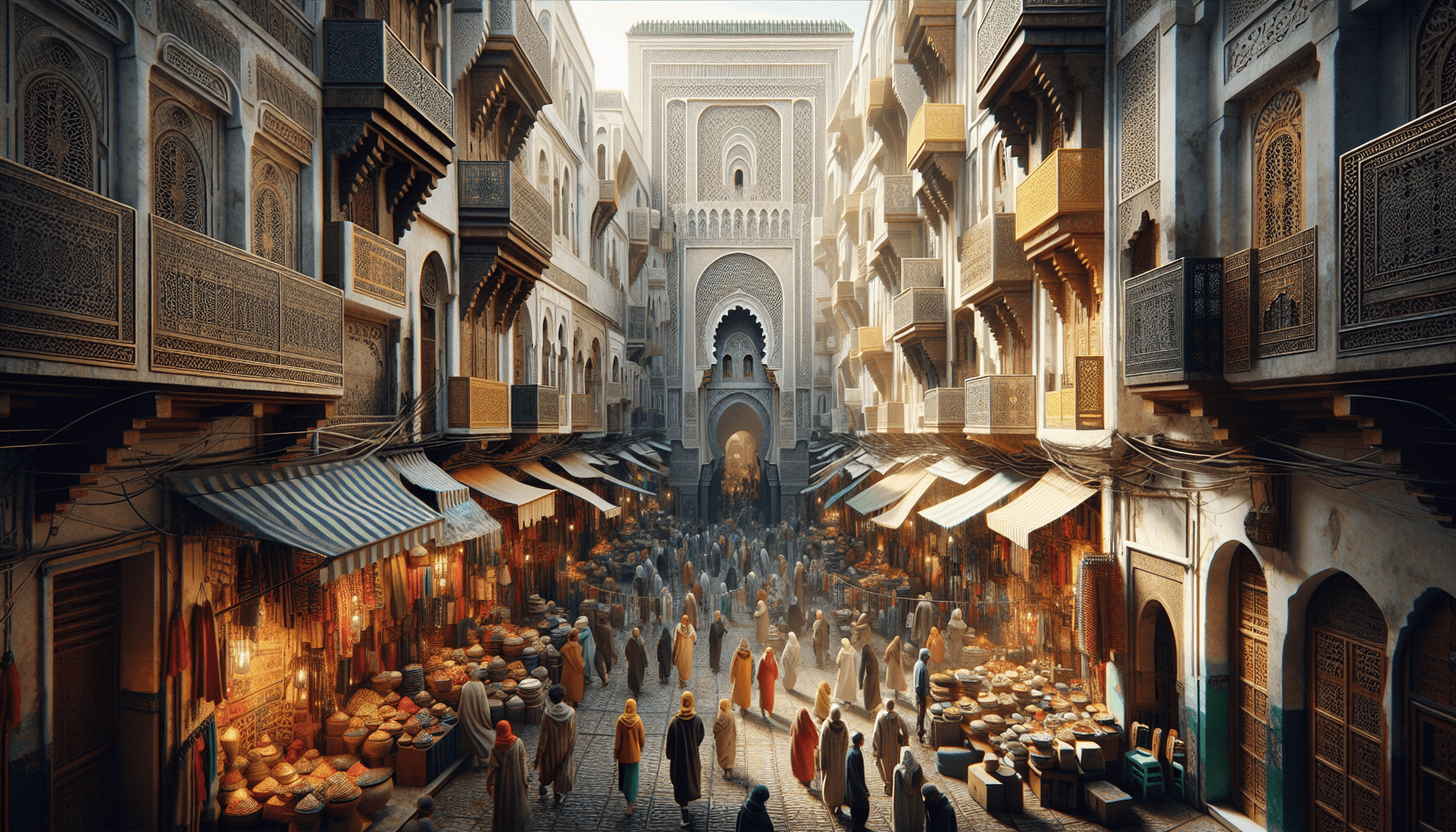BAGSMART Makeup Bag Travel Toiletry Bag, Puffy Padded Make Up Bags for Women Makeup Organizer Case, Wide-open Pouch Purse Travel Essentials Toiletries Accessories Brushes, Black
$9.99 (as of April 27, 2025 19:00 GMT +00:00 - More info)“The Don’ts of Travel: Morocco Edition” is a captivating video filmed in Casablanca, Morocco that provides important information about the things tourists should not do when visiting the country. With its emphasis on great tourist attractions and activities in Morocco, the video covers a wide range of don’ts, such as not being allowed to enter most mosques except for the Hassan II Mosque in Casablanca, being aware of shorter hours or closures on Fridays, not bargaining during the call for prayer, and being prepared for lengthy customs procedures. The video also offers valuable advice on safety, including being cautious in crowded areas and being aware of pickpockets, cultural considerations like using the right hand for important interactions and removing shoes when entering someone’s home or a mosque, and practical tips like having small bills for tipping and using cash instead of credit cards. Whether you’re planning a trip to Casablanca, Fes, Marrakech, the Sahara, or the Blue City, watching this video will help you make the most of your Moroccan vacation by avoiding common tourist mistakes and having a more enjoyable and culturally sensitive experience.
Tourist Attractions and Activities
Explore the vibrant markets of Suk and Medina
When visiting Morocco, one of the must-do activities is exploring the vibrant markets, known as Suk and Medina. These markets are filled with a wide array of goods, such as spices, handicrafts, traditional clothing, and souvenirs. As you wander through the narrow alleyways, you’ll be captivated by the rich colors, scents, and sounds that surround you. Don’t be afraid to haggle with the vendors to get the best deals and immerse yourself in the local culture. Remember to keep an eye out for unique and authentic items that will make perfect mementos of your trip.
Visit the historic Hassan II Mosque in Casablanca
While most mosques in Morocco are off-limits to tourists, there is one exception that is definitely worth a visit—the Hassan II Mosque in Casablanca. This magnificent mosque is one of the largest in the world and showcases the stunning architectural beauty of Morocco. Take a guided tour to learn about the cultural and religious significance of the mosque, and be sure to admire the intricate details and craftsmanship that went into its construction. The fusion of traditional Moroccan and modern Islamic architecture is truly breathtaking.
Discover the ancient ruins of Volubilis
For history enthusiasts, a visit to the ancient Roman ruins of Volubilis is a must-do activity. Located near the city of Meknes, these well-preserved ruins offer a glimpse into Morocco’s rich past. Walk among the remnants of grand villas, intricate mosaics, and towering columns, and imagine what life was like during the Roman Empire. Don’t forget to bring your camera, as the panoramic views of the surrounding countryside are simply awe-inspiring.
Hike through the stunning landscapes of the Atlas Mountains
Nature lovers and adventure seekers will find solace in the Atlas Mountains. These majestic mountains span across Morocco, offering breathtaking vistas, lush valleys, and challenging hiking trails. Lace up your boots and embark on a trek through the stunning landscapes, immersing yourself in the natural beauty of this rugged terrain. Encounter Berber villages nestled in the mountains, meet friendly locals, and witness traditional Berber culture firsthand. The Atlas Mountains provide a unique and unforgettable experience for those seeking an escape from the bustling cities.
Experience the unique beauty of the Sahara Desert
No trip to Morocco is complete without a visit to the Sahara Desert. Embark on a desert expedition and witness the vast expanse of golden sand dunes that stretch as far as the eye can see. Take a camel ride through the desert, spending a night under the stars in a traditional Bedouin camp. Experience the magic of the desert as you listen to traditional music, watch mesmerizing desert sunsets, and indulge in delicious Moroccan cuisine. The Sahara Desert is a place of tranquility and wonder, offering a once-in-a-lifetime adventure that will leave you with memories to cherish forever.
Cultural Considerations
Use your right hand for greetings and important interactions
When engaging with locals, it’s important to remember to use your right hand for greetings and important interactions. In Moroccan culture, the left hand is considered unclean and is reserved for personal hygiene tasks. Using your right hand shows respect and is seen as a polite gesture. So whether you’re shaking hands, passing an item, or receiving something, always use your right hand to avoid any unintentional offense.
Remove your shoes when entering someone’s home or a mosque
One cultural practice to keep in mind when visiting Morocco is the custom of removing your shoes when entering someone’s home or a mosque. This gesture is a sign of respect and cleanliness, and it’s a common practice throughout the country. It’s a good idea to observe others and follow their lead when entering a mosque or someone’s home, as this will show your respect for their customs and traditions.
Dress conservatively, especially for female travelers
Morocco is a conservative country, and it’s important to dress modestly, especially for female travelers. Women should avoid wearing revealing clothing such as shorts, short skirts, and sleeveless or low-cut tops. Instead, opt for loose-fitting clothing that covers your shoulders and knees. This is particularly important when visiting religious sites, as a sign of respect for the sacredness of these places.
Ask for permission before taking pictures of locals
In Morocco, it is courteous to ask for permission before taking pictures of locals. While many Moroccans are happy to have their picture taken, it’s always a good idea to ask first out of respect for their privacy and cultural norms. Taking the time to establish a connection with the locals and showing genuine interest in their lives will not only allow you to capture beautiful moments but also create meaningful interactions and memories.
Mosques and Holy Days
Most mosques are off-limits to tourists
While Morocco is home to many beautiful mosques, it’s important to note that most are off-limits to tourists. Mosques are considered sacred places of worship for Muslims, and entry is generally restricted to those practicing the faith. However, there is one exception—the Hassan II Mosque in Casablanca. This stunning mosque welcomes tourists and offers guided tours, allowing visitors to appreciate its architectural beauty and learn about Islamic culture and tradition.
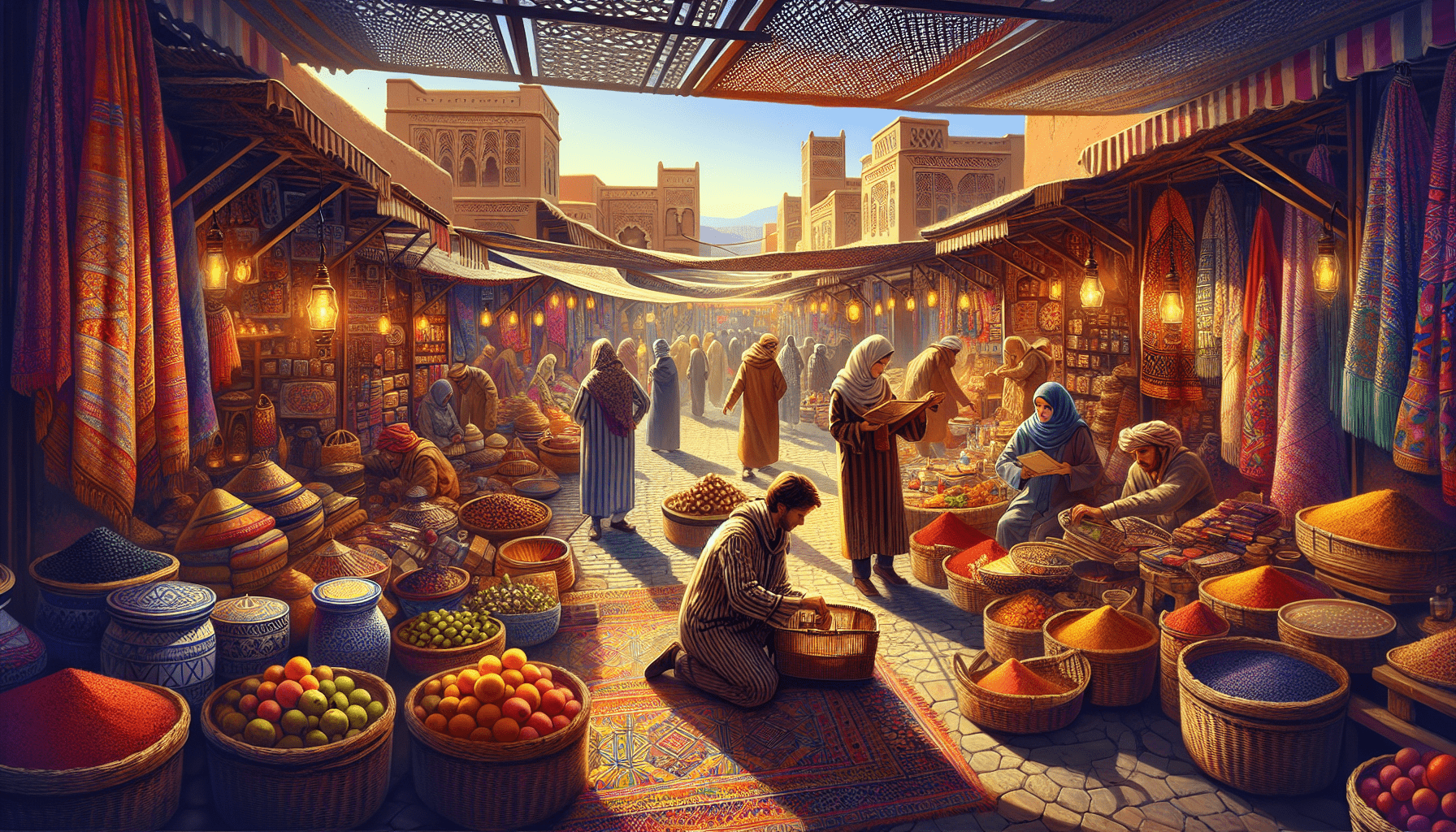
The Hassan II Mosque in Casablanca allows visitors
As mentioned, the Hassan II Mosque in Casablanca is the exception to the general rule of mosques being off-limits to tourists. This mosque is a true architectural masterpiece and stands as a symbol of tolerance and peace. Visitors can explore the mosque’s interior, with its intricate details and stunning craftsmanship, and marvel at the breathtaking view of the Atlantic Ocean from its spacious courtyard. Guided tours are available, providing fascinating insights into the history and significance of this remarkable place.
Fridays are considered a holy day, with shorter hours and closures
In Morocco, Fridays are considered a holy day, and as such, some businesses, shops, and attractions may have shorter operating hours or be closed altogether. This is particularly noticeable in more traditional and religiously conservative areas. It’s a good idea to plan your itinerary accordingly, taking into account that certain places may not be accessible or have limited hours on Fridays. This will help you make the most of your time and ensure that you are aware of any potential closures or changes in schedules.
Respect the call for prayer and avoid bargaining during that time
During your time in Morocco, you will likely hear the call to prayer, known as Adhan, multiple times a day. This call is a reminder to Muslims to stop what they are doing and engage in prayer. As a sign of respect, it is advisable to pause your activities and avoid bargaining or engaging in any loud or disruptive behavior during this time. Embrace the opportunity to observe and appreciate the religious customs and traditions of Morocco, and remember to be mindful of your surroundings and the cultural sensitivity that is important in this context.
Customs and Entry
Customs procedures can be time-consuming
When entering Morocco, be prepared for customs procedures that can be time-consuming. Upon arrival, you will need to go through immigration, where a tourist number will be written in your passport. This number will be used throughout your stay, particularly when registering at hotels and other accommodations. The process can take a couple of hours, so it’s essential to exercise patience and allow sufficient time for this part of your journey.
Tourist number is written in your passport
As mentioned earlier, upon arrival in Morocco, a tourist number will be written in your passport. This number serves as identification and is used for various purposes, such as registering at hotels and filling out official documents. It’s important to keep this number in mind during your stay, as you will likely be asked for it at various points. Consider making a note of your tourist number in a safe place, such as your phone or a travel journal, for easy reference when needed.
Drones are not allowed to be brought into Morocco
If you are a drone enthusiast, it’s important to note that drones are not allowed to be brought into Morocco. Bringing a drone into the country may result in it being confiscated at the border or checkpoints. To avoid any complications or disappointment, it’s best to leave your drone at home or find alternative ways to capture the stunning landscapes and vibrant culture of Morocco.
Bargaining and Currency
Bargaining is expected in markets like the Suk and Medina
When visiting the markets in Morocco, such as the Suk and Medina, it is expected that you will engage in bargaining. Bargaining is deeply ingrained in the culture and is seen as a normal part of the shopping experience. Don’t be afraid to negotiate prices with vendors, as it is often expected and can result in significant savings. Remember to be respectful and approach bargaining as a friendly exchange, keeping a smile on your face and a positive attitude throughout the process.
Have cash on hand as credit cards are not widely accepted
While credit cards are accepted in some places in Morocco, it’s important to have cash on hand, as they are not widely accepted, especially in smaller shops and markets. Cash is the preferred method of payment in most places, so it’s a good idea to carry enough local currency to cover your expenses. ATMs are readily available in major cities, making it convenient to withdraw cash as needed. Having cash will also come in handy when it comes to bargaining, as some vendors may not accept credit cards.
Small bills are necessary for tipping
Tipping is a common practice in Morocco, and it’s important to have small bills on hand for this purpose. Whether you’re dining at a restaurant, receiving a service, or encountering helpful locals, tipping is a way to show appreciation and acknowledge good service. Having small bills allows you to tip appropriately without the need for change. It’s always a good idea to carry a small amount of change as well, as it may come in handy in situations where exact change is required.
Safety and Security
Be cautious when crossing the street and in crowded areas
Like any other destination, it’s important to exercise caution when it comes to safety in Morocco. When crossing the street, be aware of your surroundings and use designated crosswalks whenever possible. Traffic in Morocco can be unpredictable, and it’s essential to make eye contact with drivers and wait for a clear path before crossing. Additionally, exercise caution in crowded areas, especially in markets like Medina, as they can be crowded and hectic. Stay alert and ensure the safety of your belongings to avoid potential theft or loss.
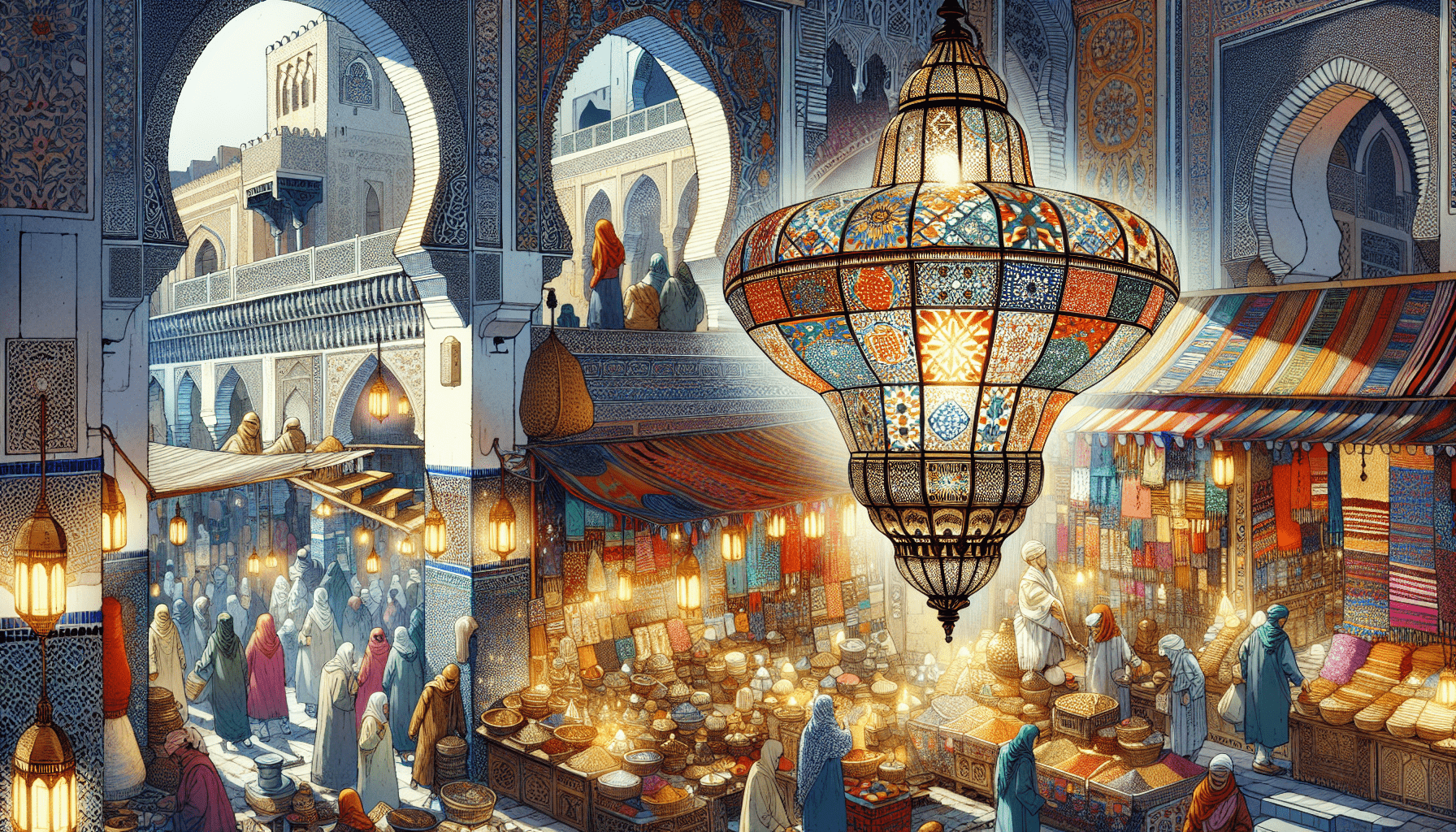
Beware of pickpockets, especially in Medina
As a popular tourist destination, Morocco is not immune to pickpocketing and petty theft. It’s essential to remain vigilant and keep a close eye on your belongings, especially in crowded areas like Medina. Be conscious of your surroundings and avoid displaying valuable items or carrying large amounts of cash. Consider using a money belt or a secure bag to keep your belongings safe and secure while exploring. By taking simple precautions, you can significantly reduce the risk of becoming a target for pickpockets.
Avoid petting stray cats
Morocco is known for its stray cat population, and while they may be adorable, it’s best to avoid petting or feeding them. Stray cats may carry diseases or parasites that can pose a risk to human health. Instead, admire them from a safe distance and ensure you wash your hands thoroughly after being in their vicinity. Enjoying the company of these feline friends from afar will help prevent any potential health issues and keep both you and the cats safe.
Negotiate taxi fares before getting in
When taking a taxi in Morocco, it’s important to negotiate the fare before getting into the vehicle. Taxis in Morocco are not metered, so fares are typically agreed upon before the journey begins. It’s advisable to ask locals or your hotel for an estimate of the appropriate fare for your destination. Having a rough idea of the fare will help you negotiate a fair price with the driver. Remember to be assertive but polite during the negotiation process to ensure a smooth and fair transaction.
Take precautions to ensure personal safety
While Morocco is generally a safe place to visit, it’s always important to take precautions to ensure your personal safety. Avoid walking alone in unfamiliar or poorly lit areas, especially at night. Stick to well-populated and well-lit areas, and consider using reliable transportation options, such as reputable taxis or ride-sharing services, especially during late hours. Always trust your instincts and be aware of your surroundings to mitigate any potential risks.
Tipping and Etiquette
Tipping is a common practice in Morocco
Tipping is a common practice in Morocco, especially in the service industry. It’s customary to tip waitstaff, hotel staff, tour guides, and other service providers. While there are no strict rules for tipping, a good guideline is to leave a 10% to 15% tip based on the quality of service. Remember to carry small bills for tipping purposes and express your gratitude for the excellent service you receive.
Ask before taking pictures of locals
While Morocco offers endless photo opportunities, it’s important to be respectful and ask for permission before taking pictures of locals. In some cases, people may decline, and it’s essential to respect their privacy and wishes. Engage in conversations, establish a connection, and show genuine interest in their lives before requesting to take their picture. This not only enhances the quality of your interactions but also helps create lasting memories and meaningful experiences.
Respect local customs and traditions
When visiting Morocco, it’s crucial to respect local customs and traditions. Embrace the cultural diversity and be open to new experiences. Dress modestly, especially in religious or conservative areas, and observe the cultural norms regarding greetings and interactions. Engage in local customs, sample traditional cuisine, and engage with the local community to gain a deeper understanding and appreciation of Moroccan culture. Show respect to the customs and traditions of the country, and you’ll find that the warm hospitality of the Moroccan people will enrich your travel experience.
Food and Restaurant Etiquette
Try the popular dish Tagine with various flavors
Moroccan cuisine is renowned for its flavors, aromas, and unique combination of spices. One staple dish that you must try is Tagine. Tagine refers to both the cooking vessel and the slow-cooked savory stew that is prepared in it. This delicious dish typically consists of tender meat, fish, or vegetables cooked with a blend of aromatic spices, such as cumin, coriander, and saffron. Each region in Morocco offers its own twist on Tagine, so be sure to indulge in this flavorful culinary experience during your visit.
Service at restaurants can be slow, so be patient
When dining at restaurants in Morocco, it’s important to remember that service can be slow compared to what you may be accustomed to. Moroccan culture places a strong emphasis on leisure and taking time to enjoy meals and socialize. The relaxed pace is part of the dining experience, allowing you to savor each dish and fully immerse yourself in the ambiance. Embrace the opportunity to slow down, enjoy the company of your fellow travelers, and savor the flavorful cuisine that Morocco has to offer.
Expect different dining experiences in different regions
Morocco’s culinary scene is as diverse as its landscapes, and each region offers its own unique dining experiences. From the bustling street food stalls of Marrakech to the seafood delights of coastal cities like Essaouira, every corner of Morocco has something special to offer. Whether you’re indulging in traditional Moroccan street food, dining in an elegant restaurant, or enjoying a homemade meal in a riad, be prepared for a culinary adventure that will delight your taste buds and leave you craving more.
Exploring Outside Major Cities
The Sahara Desert is not easily accessible from major cities
While Morocco’s major cities like Casablanca and Marrakech offer a wealth of attractions, it’s important to note that the Sahara Desert is not easily accessible from these urban centers. If you have your heart set on venturing into the vast expanse of sand dunes, be prepared for additional travel time. The journey to the Sahara may require multiple modes of transportation, such as a combination of plane, car, and camel rides. However, the effort is undoubtedly worth it, as the Sahara offers a unique and unforgettable experience that is unlike anything else.
Plan for additional travel time to reach desert locations
When planning your trip to the Sahara, it’s crucial to account for the additional travel time required to reach desert destinations. The remote nature of the desert means that transportation options are limited, and journeys can take longer than anticipated. It’s advisable to allocate extra time for travel and be flexible with your schedule to ensure you have ample time to enjoy your desert adventure without feeling rushed. Embrace the journey and enjoy the scenic landscapes that unfold along the way, as getting to the Sahara is all part of the experience.
Travel Tips for Female Travelers
Female travelers may experience different treatment
Female travelers in Morocco may experience different treatment compared to male travelers. It’s important to be aware of this and adapt accordingly. While Morocco is generally safe for female travelers, it’s advisable to exercise caution and be extra vigilant, especially when traveling solo. Dressing modestly and respecting local customs can help minimize unwanted attention and ensure a more comfortable experience. Having a confident yet respectful demeanor will also go a long way in navigating the cultural nuances and enjoying a fulfilling travel experience.
Dress conservatively to respect local customs and traditions
As mentioned earlier, dressing conservatively is essential, especially for female travelers. In Morocco, it is recommended to cover your shoulders, knees, and chest to show respect for local customs and traditions. Opt for loose-fitting clothing made from lightweight fabrics to stay cool in the warm climate. Scarves or shawls can also be a useful accessory to have on hand, offering additional coverage when needed. By dressing appropriately, you will not only feel more comfortable but also demonstrate your respect for the local culture.



